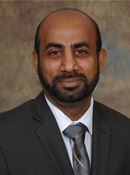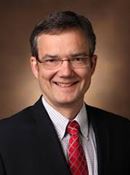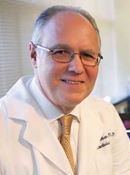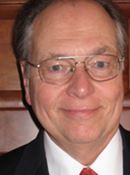President: Héctor Valdivia, PhD University of Wisconsin-Madison, Madison, WIDr. Héctor H. Valdivia, Professor of Internal Medicine and of Molecular & Integrative Physiology, has more than 25 years of experience in the field of ion channels. He has published on L-type Ca channels, voltage-dependent K channels, Ca-dependent (big) K channel, and epithelial Cl channels. More recently his lab has focused efforts on cardiac excitation-contraction coupling, ryanodine receptors, and intracellular calcium homeostasis. For more information, please visit Valdivia Lab Site. |
|
Secretary: Jonathan A. Kirk, Ph.D. The Kirk lab, at Loyola University Chicago Stritch School of Medicine studies the mechanisms and functional consequences of the weakening heart during various cardiovascular diseases, focusing on the molecular mechanisms that cause the myofilament to malfunction. For more information, please visit Kirk Lab Site. |
|
Treasurer: Michelle Parvatiyar, Ph.D. The Parvatiyar Lab interests are centered on the development of therapeutic interventions to improve systolic function in dilated cardiomyopathies and other conditions culminating in heart failure. Additional interests include understanding discrete mechanisms of how innate immunity plays a role in cardiomyopathic disease and post myocardial insult. For more information, please visit Parvatiyar Lab Site. |
|
Past Presidents
|
| 2020-2023 PresidentSakthivel Sadayappan, PhD, MBAUniversity of Cincinnati, Cincinnati, OHDr. Sadayappan’s research is driven by the desire to improve cardiac health with the long-range goal of preventing the development of heart failure that results from hypertrophic cardiomyopathy and coronary heart disease. For more information, please visit Sadayappan Lab Site. |
| 2018-2020 Co-PresidentDonald Bers, PhDUC Davis, Davis, CADr. Bers is an internationally renowned leader in cardiovascular research, particularly molecular-cellular and animal studies aimed at understanding regulation of the normal heartbeat and how things go wrong in pathophysiological states like heart failure and arrhythmias. For more information, please visit Bers Lab Site. |
| 2018-2020 Co-President Jil C. Tardiff, MD, PhDUniversity of Arizona, Tucson, AZAs a physician-scientist, Dr. Tardiff’s work focuses on the mechanisms that underlie the development of the most common form of genetic cardiomyopathy,hypertrophic cardiomyopathy that has been linked to mutations in genes encoding proteins of the cardiac sarcomere. For more information, please visit Tardiff Lab Site. |
| 2014-2017Bjorn C. Knollmann, MD, PhDDirector, Vanderbilt Center for Arrhythmia Research and Therapeutics Vanderbilt University Medical Center, Nashville, TNDr. Knollmann investigates the biology of cardiac arrhythmias. Using genetically-altered mice and human induced pluripotent stem cells as model systems, ongoing lab research examines several key pathways of arrhythmias and sudden death in humans. Ongoing clinical studies test new approaches toward preventing atrial fibrillation. For more information, please visit Knollmann Lab Site. |
| 2010-2013Steven R. Houser, PhDTemple University, Philadelphia, PAThe research in the Houser laboratory is focused on those processes thatmaintain the electrical and contractile properties of the normal heart andthe defects in these processes that lead to electrical instability (arrhythmias and sudden death), poor cardiac pump performance and congestive heart failure). For more information, please visit Houser Lab Site. |
| 2007-2009James N. Weiss, MDUCLA Medical Center, Los Angeles, CADr. Weiss’ research focuses on ion channel biophysics, cardiac electrophysiology, arrhythmias, and ischemia and mitochondrial biology. He leads an interdisciplinary group combining mathematical and experimental biology. For more information, please visit Weiss Lab Site. |
| 2004-2006Paul D. Allen, MD, PhDProfessor of Anaesthesia, Emeritus
|
| 2000-2003Eduardo Marbán, MD, PhDCedars-Sinai, Los Angeles, CAThe current research areas of Dr. Marbán are using biologically based therapies for cardiac regeneration and biological pacemakers. For more information, please visit Marbán Lab Site. |
| 1997-1999Martin Morad, PhDMedical University of South Carolina, Charleston, SCDr. Morad is an internationally recognized scientist in the field of cardiac electrophysiology and calcium signaling, specifically in the area of calcium-binding proteins. For more information, please visit Morad Lab Site. |
| 1994-1996James D. Potter, PhDUniversity of Miami Miller School of Medicine, Miami, FL |
| The Cardiac Muscle Society was established in the 1960’s to promote the interactions between basic and clinical cardiovascular investigators. Members meet annually, exchange their latest discoveries and exchange ideas on future cardiovascular research. | 2160 S. First Ave, CTRE 522 Maywood, IL 60153 Phone: (464) 220-9649 Email: jkirk2@luc.edu |














